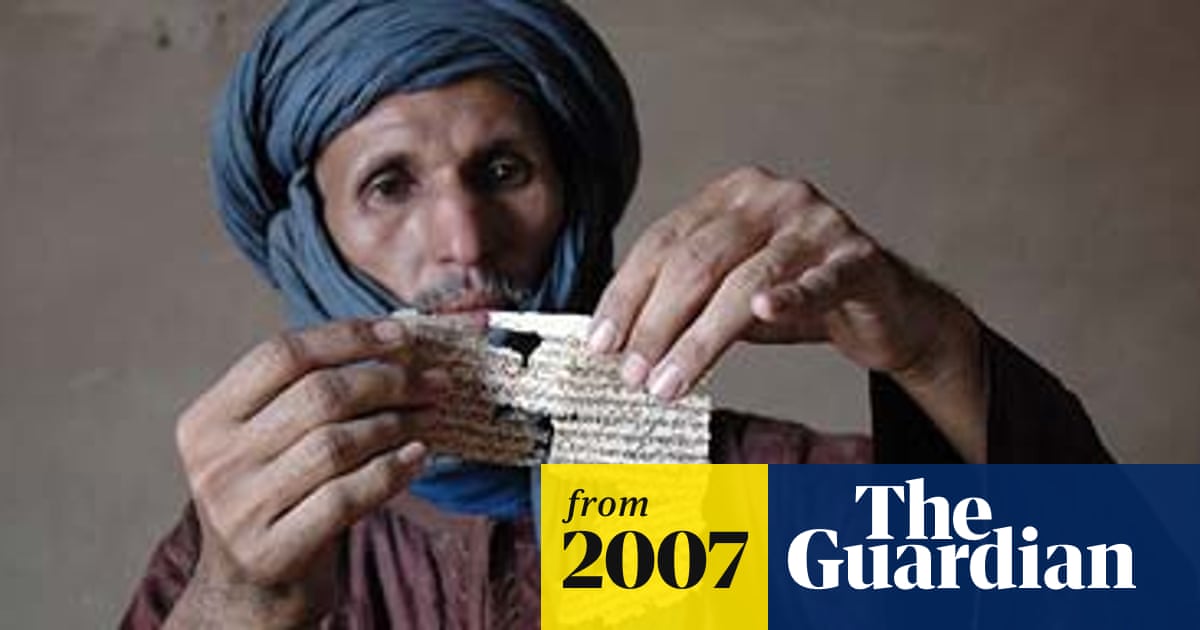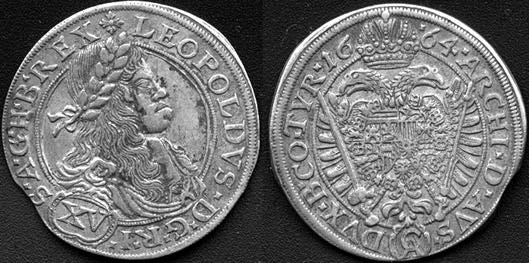Some good news out of Africa:
An audio slideshow:
In Timbuktu the race is on to preserve papers that document a west African golden age
A hot wind stirred up the desert sand. Fida ag Muhammad, a wispy man with a blue-grey turban, hurried across the street. Reaching a mud-brick building, he quickly unlocked its corrugated iron door and pushed it open. A beam of soft early-morning light pierced the darkness. On a metal table covered with a red bath towel sat half a dozen leather-bound manuscripts. Carefully untying the string around a small weathered pouch, Mr Muhammad pulled back its flaps to reveal a sheaf of yellowed papers. Their edges had crumbled away, but the neat Arabic calligraphy was still clear.
For an outsider, such a remarkable find might seem extraordinary. In Timbuktu and its surrounding villages like Ber, where Mr Muhammad lives, it is commonplace. After centuries of storage in wooden trunks, caves or boxes hidden beneath the sand, tens of thousands of ancient manuscripts, covering topics as diverse as astronomy, poetry, music, medicine and women's rights, are surfacing across the legendary Malian city.
Their emergence has caused a stir among academics and researchers, who say they represent some of the earliest examples of written history in sub-Saharan Africa and are a window into a golden age of scholarship in west Africa. Some even believe that the fragile papers, which are now the focus of an African-led preservation effort, may reshape perceptions of the continent's past.
"It has long been said that there was only oral history in this part of the world," said Salem Ould Elhadje, 67, a historian in Timbuktu. "But these manuscripts come from an African city, a city of black people."
Books became hugely prized. Travellers from as far as the Middle East brought manuscripts to Timbuktu to sell. Using paper manufactured in Europe, scholars in the town produced their own original work, which was then copied by their pupils. Commercial transactions were recorded - slaves and ostrich feathers were among the goods traded - as were the pronouncements of learned men on everything from the environment to polygamy and witchcraft.
"Every manuscript contains surprises," said Shahid Mathee, part of a University of Cape Town team studying the manuscripts. "We have even found texts where scholars offer advice on overcoming erection problems."
With South African money, a £3.5m home for the Ahmed Baba Institute, featuring a museum, archive and rooms for scholars, is being built in the heart of the city, and will open next year. Meanwhile workers are trying to safeguard the institute's growing stock of 30,000 manuscripts.
In a large room with fans whirring overhead, a team is building made-to-measure cardboard boxes for every manuscript that will provide protection from the dust. Fragile pages are being carefully affixed to special Japanese paper to stop them crumbling.
Across the courtyard, researchers sit in front of computers documenting the contents of each manuscript. Then, with the help of computer scanners, ancient knowledge is uploaded into the 21st century. "We are creating a virtual library," said Muhammad Diagayete, 37, a researcher who was busy documenting a 1670 text on astronomy written in blue, red and black ink. "We want people all over the world to be able to access these manuscripts online."
Private collections are also being restored. Outside interest, and funding, has helped to create more than 20 libraries in Timbuktu, from tiny collections with a few hundred documents to Ismael Haidara's Fondo Kati Bibliothèque, which has more than 7,000 leather-bound manuscripts dating back to 1198. Many were brought from Andalucia, Spain, by his ancestors, who came to Timbuktu in the 15th century.
A hot wind stirred up the desert sand. Fida ag Muhammad, a wispy man with a blue-grey turban, hurried across the street. Reaching a mud-brick building, he quickly unlocked its corrugated iron door and pushed it open. A beam of soft early-morning light pierced the darkness. On a metal table covered with a red bath towel sat half a dozen leather-bound manuscripts. Carefully untying the string around a small weathered pouch, Mr Muhammad pulled back its flaps to reveal a sheaf of yellowed papers. Their edges had crumbled away, but the neat Arabic calligraphy was still clear.
For an outsider, such a remarkable find might seem extraordinary. In Timbuktu and its surrounding villages like Ber, where Mr Muhammad lives, it is commonplace. After centuries of storage in wooden trunks, caves or boxes hidden beneath the sand, tens of thousands of ancient manuscripts, covering topics as diverse as astronomy, poetry, music, medicine and women's rights, are surfacing across the legendary Malian city.
Their emergence has caused a stir among academics and researchers, who say they represent some of the earliest examples of written history in sub-Saharan Africa and are a window into a golden age of scholarship in west Africa. Some even believe that the fragile papers, which are now the focus of an African-led preservation effort, may reshape perceptions of the continent's past.
"It has long been said that there was only oral history in this part of the world," said Salem Ould Elhadje, 67, a historian in Timbuktu. "But these manuscripts come from an African city, a city of black people."
Books became hugely prized. Travellers from as far as the Middle East brought manuscripts to Timbuktu to sell. Using paper manufactured in Europe, scholars in the town produced their own original work, which was then copied by their pupils. Commercial transactions were recorded - slaves and ostrich feathers were among the goods traded - as were the pronouncements of learned men on everything from the environment to polygamy and witchcraft.
"Every manuscript contains surprises," said Shahid Mathee, part of a University of Cape Town team studying the manuscripts. "We have even found texts where scholars offer advice on overcoming erection problems."
With South African money, a £3.5m home for the Ahmed Baba Institute, featuring a museum, archive and rooms for scholars, is being built in the heart of the city, and will open next year. Meanwhile workers are trying to safeguard the institute's growing stock of 30,000 manuscripts.
In a large room with fans whirring overhead, a team is building made-to-measure cardboard boxes for every manuscript that will provide protection from the dust. Fragile pages are being carefully affixed to special Japanese paper to stop them crumbling.
Across the courtyard, researchers sit in front of computers documenting the contents of each manuscript. Then, with the help of computer scanners, ancient knowledge is uploaded into the 21st century. "We are creating a virtual library," said Muhammad Diagayete, 37, a researcher who was busy documenting a 1670 text on astronomy written in blue, red and black ink. "We want people all over the world to be able to access these manuscripts online."
Private collections are also being restored. Outside interest, and funding, has helped to create more than 20 libraries in Timbuktu, from tiny collections with a few hundred documents to Ismael Haidara's Fondo Kati Bibliothèque, which has more than 7,000 leather-bound manuscripts dating back to 1198. Many were brought from Andalucia, Spain, by his ancestors, who came to Timbuktu in the 15th century.
An audio slideshow:



Comment